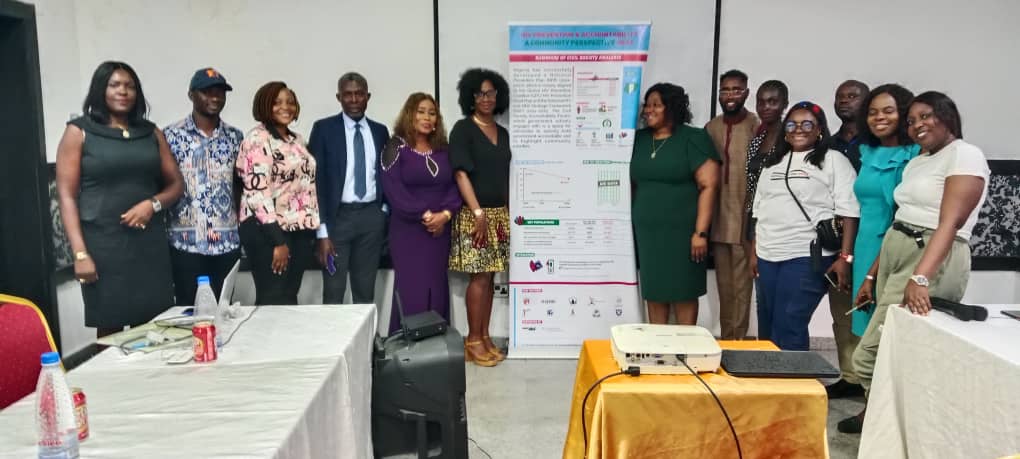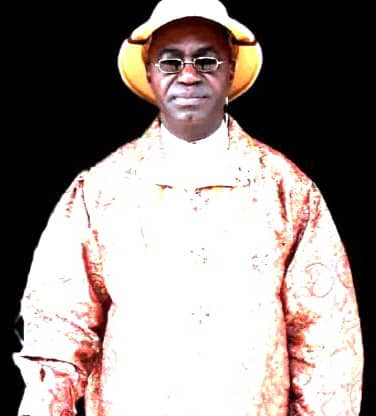Rivers
Stopping HIV Infection By 2030 Still Long Way Off – ASWHAN

Amid growing pessimism over whether Nigeria can meet the Joint United Nations Programme On HIV/AIDS (UNAIDS) target of eliminating new HIV inffections by 2030, the Association of Women Living With HIV/AIDS in Nigeria (ASWHAN) has said it would be difficult to attain the target in Nigeria, nay Rivers State.
The Coordinator of ASWHAN in Rivers State, Mrs. Fortune Kalio-Faladu, made this disclosure in an exclusive interview with The Tide, recently, during a meeting of key stakeholders involved in HIV prevention held in Port Harcourt, organised by the ASWHAN, in collaboration with the Coalition of Sex Workers Rights Movement (COSWRIM) in Nigeria.
She said, going by revelations from presentations and dicussions during the meeting, achieving the 2030 target would not be feasible, except more deliberate drastic actions are taken by stakeholders, particularly Government, at all levels.
“From our discussions today, we still have a long way to go. But I think if we, as stakeholders, and members of the State, particularly the government, can actually come to do what we have to do, in the right proportion and at the right time, we can still achieve the 2030 target”, she stated.
On the part of individuals, she said people would need to come out to ascertain their HIV status, and be on treatment, if they turn out positive, and those who are negative would have to abstain from habits that could make them positive.
“For those that are positive, they should be on drugs, because I know that once you take your drugs correctly and consistently over a period of time, you will be virally suppressed, and once you’re virally suppressed, you cannot transmit the virus”, she explained.
For stakeholders, she called for more all round commitment: to meetings, increase efforts to not only create awareness, but to also follow-up on drives to reach targeted vulnerable groups to HIV infection.
She also said beyond these, the Government has a greater part to play, if the 2030 tagget for zero HIV infection can be achieved.
A key way to do this, she said, is for the government to come up with a disciplinary group that would act as spy in order to enforce discrimination of HIV positive persons.
“The truth be told, when we talk about prevention, if I’ll be stigmatized and discriminated upon, I don’t think I will come out from my hiding. I’ll be in my house, possibly without taking the necessary drugs.
“But if the Government is there, and these positive persons are aware that they’re being protected, then they’re more likely to come out of their hiding, because they know they can get jobs for which they are qualified, and also attain societal status without discrimination”.
In her presentation at the meeting, titled, “HIV Prevention and Accountability: A Community Perspective, 2023”, the ASWHAN Coordinator delved into such areas as efforts made by Civil Societies Organisation’ (CSOs) in HIV prevention; and Progress against the 2025 roadmap for CSOs, which covered Evidence-driven assessment of HIV prevention programme needs and barriers, Precision Prevention Approach, country investment needs, HIV Prevention political leadership, community-led HIV prevention services, remove social and legal barriers, promote HIV prevention integration, new HIV prevention technologies, Real-time prevention programme monitoring, and Accountability for HIV Prevention.
Buttressing the stand of the ASWHAN Coordinator on the feasibility of the 2030 target and the way forward, the Communication Officer of the COSWRIM in Nigeria, Mr. Vena Daniel, re-echoed the need for more efforts by key stakeholders.
He said, “Based on our meeting today, I will say that we are still very far away from attaining that goal, because, looking at some of the laws and practices and fragmentations within the CSO movement, you’ll see that we’re still far away from it.
“For instance, it’s just today we’re realising that a unique group has been excluded from the HIV/AIDS implementation space, that is, people who are in confined space, such as correctional homes (prison), frequent travellers, such as drivers, Police, and other security personnels.
“Implementation has been going on over the years, but these groups have been neglected”.
He, therefore, suggested that given the present scenario, there’s the need to extend the target year to 2035, within which more deliberate efforts should be made in HIV preventive efforts, considering that it’s barely six years to 2030.
“If we can extent it to 2035, we can begin to consider it. But, for now, 2030 is not feasible. Looking at the level of work that still needs to be done, I don’t think by 2030 we can achieve zero HIV infection “, he emphasized.
Sogbeba Dokubo
Rivers
RSU Admits 11,083 Students For 2024/2025 Academic Session
The management of the Rivers State University, (RSU), Nkpolu Oroworukwu Port Harcourt has admitted eleven thousand and eighty-three students to study in various disciplines and courses for 2024/2025 academic sessions in the university.
The vice chancellor of the university,prof Isaac Zeb-Obipi disclosed this during his address at the 43rd matriculation ceremony of the institution held at the convocation arena in Port Harcourt, last Friday.
Zeb-obipi expressed delight that it was a privilege to welcome everyone to the momentous occasion, marking the beginning of an exciting academic journey for the new students and described matriculation as an important ceremony organised by institutions, especially universities.
“Though this is the 43rd matriculation ceremony of the university,it is the first under my watch as vice chancellor, and I am highly excited that I am having my tail cut in the conduct of this significant ritual of matriculation.”
“Once again, I give God all the glory and thank the State Governor, Sir Siminalayi Fubara, the 14th Governing council under the leadership of Her Excellency, Hon. Justice Mary Odili and the host of others who played one role or the other in my emergence as the vice chancellor. May I also use this opportunity to acknowledge my co-contenstants that made the selection a worthy competition, especially Prof Adolphus J. Toby and prof Nkalo H.Ukoima. There is no doubt that they all mean well for the university and as such i am studying the various vision statements they had submitted for possible inclusion in the efforts to implement what we have, “he stated.
He explained that his vision is to transform the university into a world class, innovative, inclusive institution, fostering a culture of excellence, creativity, and social responsibility through the re-engineering of the university’s academic, administrative, and community engagement frameworks to ensure that they are student centric, faculty driven, community oriented responsive to the need of the 21st century.
According to him the university aim to achieve the visions by enhancing academic programmes to meet global standards, strengthening research capacity and promoting innovation and improving infrastructure and facilities to support teaching, learning research, and fostering partnerships with industries, government, and other stakeholders to promote community engagement and entrepreneurship among others.
The VC while giving the statistics of the administration said a total of 29,107 candidates took the university as first choice in the 2024 JAMB Examination, 16,172 qualified the institution 190 cutoff mark, 15,348 registered for the post UTME, while 15,014 participated in university test and out of the number,11,083 was admitted.
The VC while congratulating the matriculants, urged them to shun any forms of social vices such as cultism, examination malpractices, sorting and indicent dressing, adding that the the school has zero tolerance on indiscipline and other anti social behaviours that are detrimental to societal growth.
Akujobi Amadi
Rivers
Fubara’s Kinsman Denounce The Suspension Of Democratically Elected Officials

The Vice Chairman of Opobo Council of Chiefs, Alabo Edwin Cockeye Brown has joined the chorus of voices calling for an immediate end to the suspension of democratically elected officials in Rivers State.
The Opobo chiefs Council’s vice chair who was speaking on the sidelines at an emergency stakeholders’ congress of the INC held at the Ijaw House in Yenagoa last Wednesday, emphasized the gravity of the suspension of a state governor, deputy and legislators, characterizing it as an unprecedented assault on the democratic process.
He argued that suspending an elected governor and the state legislature not only undermine the mandate given by the electorate but also poses a significant threat to the political stability of the state. Brown further declared the suspension as “an aberration and travesty of the constitution.”
His words, “Even though the Nigerian Constitution grants the President powers to declare a state of emergency under Section 305, it does not authorize the suspension of democratically elected officials, such as governors or members of the legislature. The proper procedure for removing a governor is outlined in Section 188 of the Constitution, which requires legislative processes rather than executive fiat”.
Brown went on, “The unconstitutional suspension of democratically elected government officials is a Slowly but surely dismantling of democratic structures. This will not help our fledgling democracy, but will destroy all the gains so far made in this democratic dispensation”.
“This is not just about Governor Fubara; it is about every citizen of Rivers State who participated in a democratic election,” he stated. He added, “Injustice in Rivers State is injustice all over Nigeria because we are all governed by one constitution.”
He expressed concern that such actions could set a dangerous precedent, eroding public trust in the electoral system and democratic institutions across Nigeria.
He further articulated the historical context of the Ijaw struggle for
representation, highlighting the community’s long-standing grievances
regarding political marginalization.
“For over 24 years, we have fought to regain our rightful place in governance,” Brown remarked. “To have that struggle undermined by a unilateral decision from the federal government is not just
frustrating—it is an affront to our identity and aspirations as Ijaw people.”
Brown called for a united front among Ijaw leaders and communities,
urging them to resist any attempts to divide or silence their voices.
He underscored the importance of dialogue and reconciliation as vital
pathways to resolving the ongoing crisis, rather than resorting to forceful measures that could exacerbate tensions. “We must engage with
the federal government, but we will do so on our terms,” he insisted.
In closing, Brown reaffirmed his commitment to the principles of
justice and equity, emphasizing that the Ijaw people would not back down in their quest for recognition and respect.
“We are prepared to stand firm and advocate for our rights. Our
history is rich with leaders who have fought for us, and we will not
allow their sacrifices to be in vain,” he concluded, rallying support
for a peaceful resolution that honors the democratic process and the will of the Rivers people.
The high-profile one-day stakeholders’ meeting brought together
influential Ijaw leaders, including Bayelsa State Governor, Douye
Diri, his deputy, Senator Lawrence Ewhrudjakpo; former Rivers State
Governor and Amanyanabo of Twon-Brass, King Alfred Diete-Spiff; former Rivers Governor, Chief Rufus Ada-George; and former Bayelsa Deputy
Governor, Rear Admiral Gboribiogha John Jonah.
Also in attendance were the Speaker of the Bayelsa State House of
Assembly, Abraham Ingobere; National Chairman of the Pan Niger Delta
Forum (PANDEF), Dr. Boladei Igali; prominent traditional rulers from
various parts of Ijawland; the President of the Ijaw Youth Council
(IYC), Jonathan Lokpobiri and many other notable Ijaw leaders from across the Niger Delta.

